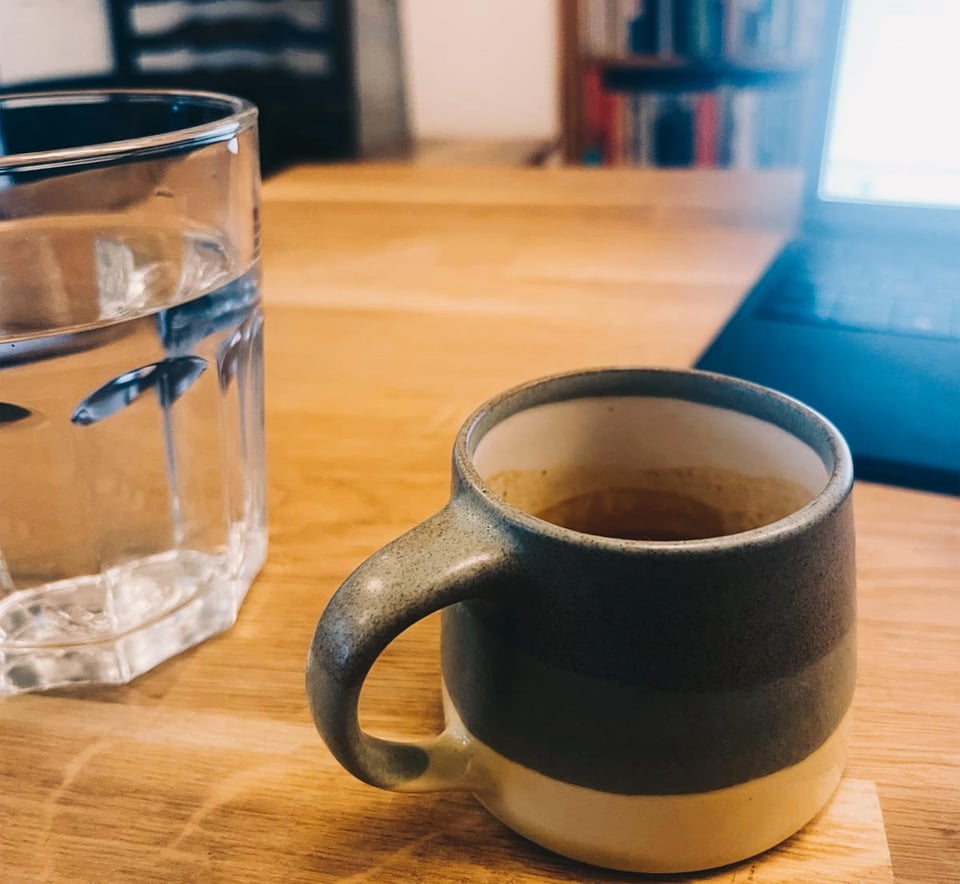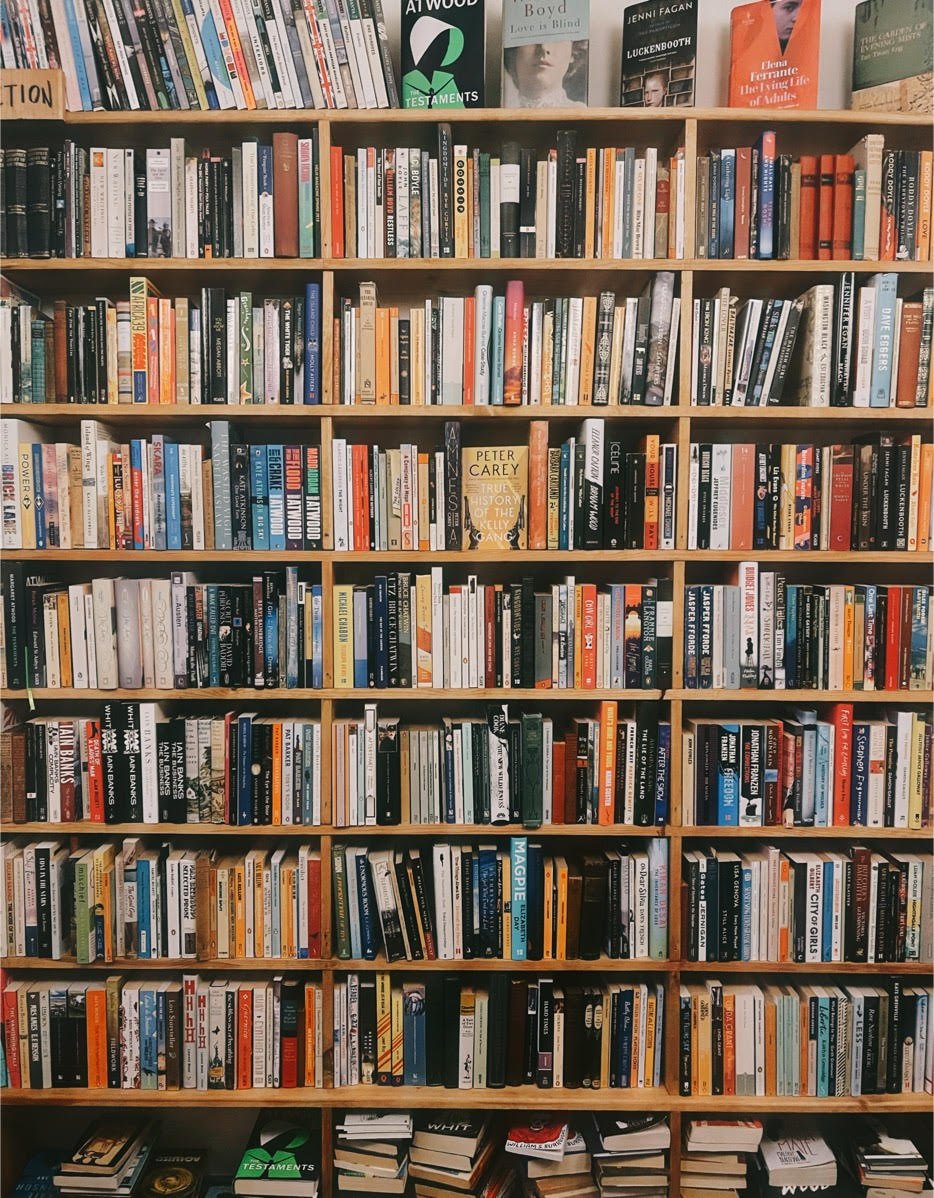My own private Central Perk
Am I a regular?
I'm pretty convinced I do my best work in coffee shops.
This statement may well be a poorly-concealed excuse for my wayward espresso habit, but I can reasonably clearly connect the dots between my most lucid thinking and a very specific set of venues in Edinburgh, Oxford and London.
If I'm required to concentrate on a distinct task, I often find I need to change my context. That's as true now as a hybrid worker as it was when I had a much more traditional office + desk set-up.
Whether that's pulling together a strategy paper, fleshing out a concept, completing a performance review, or indeed finishing off this newsletter, I know I'm more likely to get to grips with the task if I make a conscious choice to head to a café.
It's heartening to know that finding a connection between creative thinking and coffee shops isn't a new concept, and in fact has been around for almost half a millennia (see again Oxford).
This means I can pretentiously muse that I'm in fabulous company whilst refusing to acknowledge that I’m a nearly fifty-year-old bespectacled, bearded man who works in digital, is still wearing a band t-shirt and hoodie, sitting with a MacBook, drinking espresso, and writing a fucking blog post.
Could I be any more of a cliché? (RIP Chandler Bing)

There was a dizzying moment last week when I realised I’d tipped into a new phase of my relationship. Entering what has quickly become my favourite hangout on the planet, the barista looked up and quoted my order at me before I’d had the chance to open my mouth.
After all these years have I [audible gasp] achieved the hallowed status of a regular...?
Am I Phoebe?
For me, part of the enduring appeal of Friends are the scenes set in Central Perk. They embody the sense of having a place where you can hang out, catch up, chew the fat, and effortlessly just 'be'.
In the same way New York City itself has been likened to the fifth character in Sex and the City, Central Perk can be seen as the apartment all the friends share – Monica doesn't own it, Joey and Chandler's stupid chairs don't dominate the living space. It's the unofficial home from home, a place where all the friends belong.
I do wonder if the omnipresence of Friends at the end of my teenage years helped to embed certain notions in my brain. I wouldn't quite call it a yearning, but there's enough of an association to feel drawn to particular types of experience, hence the predisposition to café culture.
Real life has played its part too. I vividly remember entering an indie coffee shop in Boulder, Colorado and being fascinated by the sea of Apple devices on display. People individually tapping away at their laptops, absorbed in their screens alongside their lattes.
This was in 2010, and it felt markedly different from how people were using such spaces in the UK. Well, maybe in Nathan Barley's neighbourhood, but not here in leafy old Edinburgh. These days I could effortlessly namecheck numerous venues in the city where a similar ambience and solo-working clientele exist.
Whether people I know have made recommendations, or I've seen a review online, or I've stumbled upon it accidentally, there's a list in my head of cafés where I can comfortably spend time working in my home city.
Although maybe not quite comfortable enough to sing Smelly Cat on a stool.
Am I a prisoner in Filterworld?
I've been making my way through the audiobook of Kyle Chayka's Filterworld: How Algorithms Flattened Culture over the past week and enjoying it immensely.
I don't think anyone who's paid attention, even just casually, to the way technology now pervades daily life will be particularly surprised about the conclusions he draws.
What's fascinating (or is it horrifying?) is just how extensively certain norms have taken hold, largely unchallenged, and the negative consequences that are playing out in all sorts of ways.
I like the forensic detail of the examples he uses, and the historical context he draws on. It's interesting to look back at the introduction of Google's seemingly innocuous PageRank algorithm (which basically helps to make sense and bring order to a gargantuan amount of information) and consider how quickly big tech has been warped by market forces and nefarious influences.
Curiously it wasn't algorithms that first alerted me to Filterworld's existence. It cropped up organically through my regular diet of podcasts (The Ezra Klein Show, How Long Gone, and Offline), casual browsing of The Guardian app, and the Storythings newsletter.
I don't know if this places me in a specific category as a careful custodian of my own online consumption, or someone whose opinions are all formed within his own Groupthink bubble – you'll have to read the book to find out (clue: head to the chapter called 'In Search of Human Curation').
Chayka's core argument is that the 'flattening' effect of algorithms means that homogeneity has seeped into every aspect of our lives.
He contends that it's not just the ways we're consuming, creating and engaging online that have succumbed to algorithmic influence, there are far more wide-ranging cultural impacts – how art is produced, where and how we travel, and, yup, why coffee shops are the same everywhere.

You can read an excerpt on why every coffee shop looks the same, which waxes lyrical on the way Instagram in particular has driven a certain aesthetic and levelling out of experiences.
I definitely buy into lots of the points Chayka makes, although I'm not sure the coffee shop example is the strongest in the book.
Identikit fast food outlets, pop culture, a mobile workforce freed up by cheap data, prevalent WiFi, and Cloud services have all contributed to design styles and physical spaces that favour utility over fuss. And the push back against homogeneity was alive and well in the pre-algorithm influenced Internet era, as 1999's Fight Club makes clear.
But maybe I doth protest too much, maybe it suits my kooky narrative better to blame Friends for my habits than accept that pervasive algorithms have impacted me so profoundly IRL.
The book takes you to lots of places you'd expect – damning examples of how players such as Google, Facebook, Spotify, Netflix, Airbnb, Amazon and TikTok manipulate us and keep us coming back for more. I really enjoyed the chapters on the attempts to regulate the industry; some partially successful, some less so. And a special shout out for the detailed breakdown of GDPR. 💃
Perhaps surprisingly, I found the part of the book where Chayka attempts to break free of the algorithmically-generated feeds that rule his life the most compelling.
What could have easily been hackneyed and one-dimensional ("tried it, it was hard") is actually a rather charming, personal tale of formative experiences on the early Internet and a valiant attempt to reclaim the word 'curate'.
After the detailed-but-anxiety-inducing exploration of the influence of algorithms, being able to reflect that there's a world beyond them – or at least a world less governed by them – is a pleasing thing to imagine.
If you've made it this far down, I'd suggest a trip to Filterworld could be for you.
Perhaps grab a copy and head for your favourite coffee shop?
☕ Thank you for reading.
Add a comment: